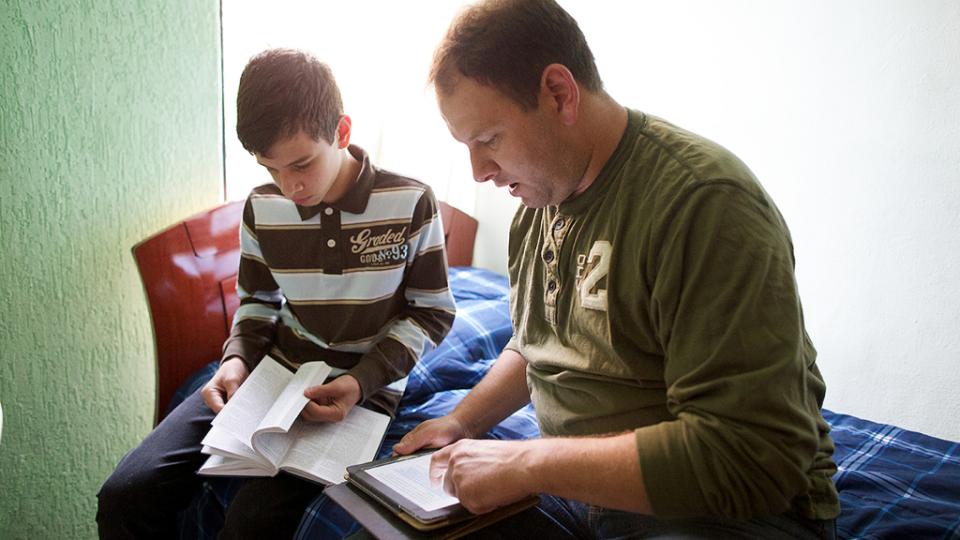The Church of Jesus Christ of Latter-day Saints is offering a digital version of the Bible translation in German as of Wednesday, 26 May, 2021. It is available free of charge on ChurchofJesusChrist.org and in the Gospel Library mobile application.
 DOWNLOAD
DOWNLOAD“The 1939 public domain version of the German Menge translation was chosen after carefully evaluating several candidate texts“, said Todd Harris, Senior Linguist of the Church’s Publishing Department. “It is the best text available that is both in the public domain and meets Church standards for dignity of language and acceptable doctrinal accuracy“, he said.
The digital publication contains the entire Bible text and will be updated with footnotes, cross-references and headings over the next few years. The 2016 edition of the Einheitsübersetzung will remain, for the time being, the official preferred German Bible translation in print for Church usage.
”We are very pleased to now have the entire German standard works of the Church digitally available.” said Elder Erich W. Kopischke, a General Authority Seventy, currently serving in the Europe Area Presidency. “We hope that readers will find more joy, strength and inspiration through the Holy Scriptures”, he added.
The standard works are the volumes of scripture officially accepted by the Church, including the Holy Bible, Book of Mormon, Doctrine and Covenants, and Pearl of Great Price.
The first Bible translations into German date as far back as the 9th Century. 500 Years ago, the German Reformer Martin Luther began to translate the New Testament from Greek into German. He was inspired by the thought of a Holy Scripture that is accessible to all.
At the beginning of the 20th Century, German school principal Hermann Menge provided another translation of the Bible. The scholar, who held a PhD in ancient language and history, combined two different translation methods: focusing on meaning while staying true to the original text.
There are currently over 40.000 Members of the Church of Jesus Christ of Latter-day Saints living in Germany, Austria, and Switzerland.